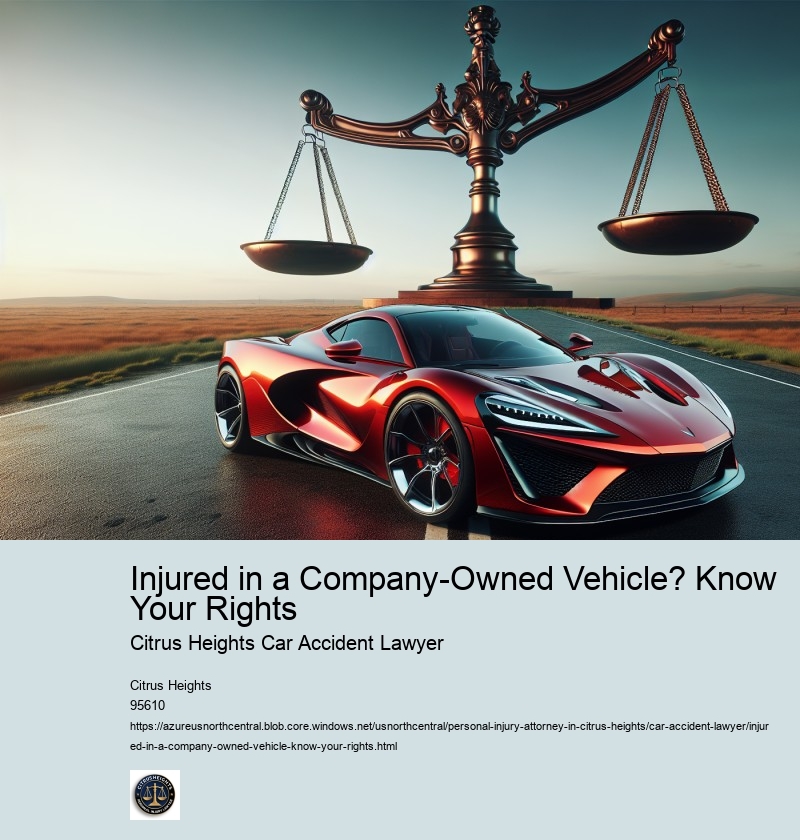Injured in a Company-Owned Vehicle? Know Your Rights
negligence

We also provide a Citrus Heights car accident FAQ, which answers common questions like how long you have to file a claim, what to do if the other driver doesn't have insurance, and what your case may be worth. If you’ve been hurt in a car accident, speaking with a personal injury attorney in Citrus Heights can help you understand your legal options and pursue fair compensation.. This resource helps you get a better understanding of how personal injury law works in Citrus Heights and how your case might unfold. traffic collision reconstruction For cases involving intersection collisions, we match clients with lawyers who handle T-bone and side-impact accident claims, where disputes over right-of-way are common.
Injured in a Company-Owned Vehicle? Know Your Rights - negligence
- physical disability
- legal settlement
- understanding
In these cases, your lawyer may help file claims under uninsured motorist coverage or coordinate with law enforcement to identify the other party. California uses a comparative fault system, which means your compensation can be reduced if you're partially at fault. There's no retainer, no billing by the hour, and no financial risk on your part. Teen driver accident representation is also available for crashes involving young, inexperienced drivers.
Injured in a Company-Owned Vehicle? Know Your Rights - traffic collision reconstruction
- Rancho Cucamonga
- Stockton
- transparency
- Trinity County
- testimonial
- personal injury lawyer
- legal liability
Our service matches you directly with a lawyer who handles your type of case, understands local procedures, and is ready to help right away. For more severe incidents, head-on collision injury representation is available from attorneys with experience handling major-impact cases. You also don't have to wait for business hours. Your attorney only receives payment if they secure compensation for you.
Injured in a Company-Owned Vehicle?
Injured in a Company-Owned Vehicle? Know Your Rights - advertising
- Road traffic safety
- safety
- advertising
- Greenback Party
- duty
- statute
- communication
- catastrophic injury
Know Your Rights - advertising
- trial
- transparency
- expense
Injured in a Company-Owned Vehicle? Know Your Rights - Sunnyvale
- negligence
- traffic collision reconstruction
- advertising
- violence
- Sunnyvale
- verdict
- equitable remedy
A knowledgeable Citrus Heights car accident lawyer will work to minimize your share of fault by gathering scene evidence, reviewing police reports, and speaking with witnesses. After a car accident, getting help from a Citrus Heights car accident lawyer can make a real difference in how your case is handled and how much compensation you're able to recover. These may involve disputes over who had the right of way and often result in door-side injuries. Distracted driving accident claims are common as well, especially when phone use or other forms of inattention contributed to the crash. Even accidents that appear minor can lead to complications with medical bills, vehicle damage, and lost income.